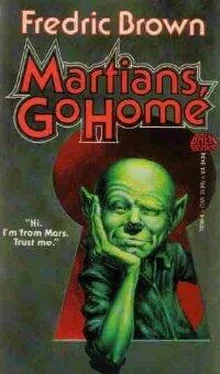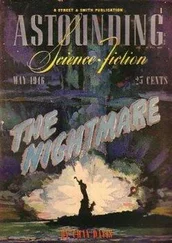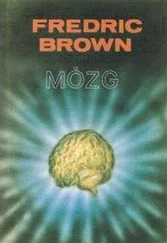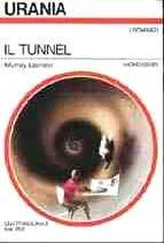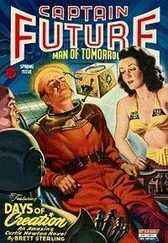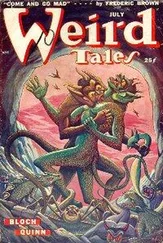Fredric Brown - Martians, Go Home
Здесь есть возможность читать онлайн «Fredric Brown - Martians, Go Home» весь текст электронной книги совершенно бесплатно (целиком полную версию без сокращений). В некоторых случаях можно слушать аудио, скачать через торрент в формате fb2 и присутствует краткое содержание. Год выпуска: 1955, Издательство: Dutton, Жанр: Юмористическая фантастика, на английском языке. Описание произведения, (предисловие) а так же отзывы посетителей доступны на портале библиотеки ЛибКат.
- Название:Martians, Go Home
- Автор:
- Издательство:Dutton
- Жанр:
- Год:1955
- ISBN:нет данных
- Рейтинг книги:3 / 5. Голосов: 1
-
Избранное:Добавить в избранное
- Отзывы:
-
Ваша оценка:
- 60
- 1
- 2
- 3
- 4
- 5
Martians, Go Home: краткое содержание, описание и аннотация
Предлагаем к чтению аннотацию, описание, краткое содержание или предисловие (зависит от того, что написал сам автор книги «Martians, Go Home»). Если вы не нашли необходимую информацию о книге — напишите в комментариях, мы постараемся отыскать её.
Martians, Go Home — читать онлайн бесплатно полную книгу (весь текст) целиком
Ниже представлен текст книги, разбитый по страницам. Система сохранения места последней прочитанной страницы, позволяет с удобством читать онлайн бесплатно книгу «Martians, Go Home», без необходимости каждый раз заново искать на чём Вы остановились. Поставьте закладку, и сможете в любой момент перейти на страницу, на которой закончили чтение.
Интервал:
Закладка:
Martians, Go Home
by Fredric Brown
PROLOGUE
If the peoples of Earth were not prepared for the coming of the Martians, it was their own fault. Events of the preceding century in general and of the preceding few decades in particular should have prepared them.
One might say that preparation, in a very general sort of way, had been going on much longer than that, for ever since men had known that Earth was not the center of the Universe but only one of a number of planets circling about the same sun, men had speculated as to whether the other planets might not be, like Earth, inhabited. However, such speculation, for lack of evidence pro or con, remained on a purely philosophical plane, like speculation as to how many angels could dance on the point of a pin and whether Adam had a navel.
So let’s say that preparation really started with Schiaparelli and Lowell, especially Lowell.
Schiaparelli was the Italian astronomer who discovered the canali on Mars, but he never claimed that they were artificial constructions. His word canali meant channels.
It was the American astronomer Lowell who changed the translation. It was Lowell who, after studying and drawing them, set afire first his own imagination and then the imagination of the public by claiming they were canals, definitely artificial. Proof positive that Mars was inhabited.
True, few other astronomers went along with Lowell;. some denied the very existence of the markings or claimed they were only optical illusions, some explained them as natural markings, not canals at all.
But by and large the public, which always tends to accentuate the positive, eliminated the negative and sided with Lowell. Latching onto the affirmative, they demanded and got millions of words of speculation, popular-science and Sunday-supplement style, about the Martians.
Then science fiction took over the field of speculation. It took over with a resounding bang in 1895 when H. G. Wells wrote his superlative War of the Worlds , a classic novel describing the invasion of Earth by Martians who bridged space in projectiles fired from guns on Mars.
That book, which became tremendously popular, helped greatly in preparing Earth for invasion. And another Welles, one Orson, gave it a big assist. On Halloween eve in 1938 he put on a radio program that was a dramatization of Wells’ book—and proved, although unintentionally, that many of us were even then ready to accept invasion from Mars as a reality. Thousands of people all over the country, having tuned in the program late and having missed the announcement that it was fiction, believed it as fact, believed that Martians had actually landed and were licking the hell out of us. According to their natures, some of these people ran to hide under their beds and others ran out into the street with shotguns to look for Martians.
Science fiction was burgeoning—but so was science itself, so much so that it was becoming increasingly difficult to judge, in science fictions, where the science ended and the fiction started.
V-2 rockets over the channel into England. Radar, sonar.
Then the A-bomb. People quit doubting that science could do anything it wanted to do. Atomic energy.
Experimental space rockets already pushing outside the atmosphere above White Sands, New Mexico. A space station planned to revolve around the Earth. Pretty soon the moon.
The H-bomb.
The flying saucers. Of course we know now what they were, but people didn’t then and many believed firmly that they were extraterrestrial.
The atomic submarine. The discovery of metzite 1963. Barner’s theory proving Einstein’s wrong, proving speeds faster than light were possible.
Anything could happen and a great many people expected it to.
Not only was the Western Hemisphere affected. People everywhere were becoming ready to believe anything. There was the Jap in Yamanashi who claimed, to be a Martian, and got himself killed by a mob that believed him. There were the Singapore riots of 1962, and it is known that the Philippine Rebellion of the following year was sparked by a secret cult among the Moros which claimed to be in mystic communication with the Venusians and acting under their advice and guidance. And in 1964 there was the tragic case of the two American army flyers who were forced to make an emergency landing of the experimental stratojet they were flying. They landed just south of the border and were immediately and enthusiastically killed by Mexicans who, as they stepped from their plane still wearing space suits and helmets, took them to be Martians.
Yes, we should have been prepared.
But for the form in which they carne? Yes and no. Science fiction had presented there in a thousand forms—tall blue shadows, microscopic reptiles, gigantic insects, fireballs, ambulatory flowers, what have you—but science fiction had very carefully avoided the cliché, and the cliché turned out to be the truth. They really were little green men.
But with a difference, and what a difference. Nobody could have been prepared for that.
Because many people still think that this might have a bearing on the matter, it may be well to state that the year 1964 started out in no important way different from the dozen-odd years that preceded it.
If anything, it started a trifle better. The relatively minor recession of the early sixties was over and the stock market was reaching for new highs.
The Cold War was still in the deep freeze, and the deep freeze showed no more signs of imminent explosion than at any other time since the China crisis.
Europe was more nearly united than at any time since World War Il and a recovered Germany was taking its place among the great industrial nations. In the United States business was booming and there were two cars in most garages. In Asia there was less starvation than usual.
Yes, 1964 started well.
PART ONE
The Coming of the Martians
1.
TIME: Early evening of March 26, 1964, a Thursday.
PLACE: A two-room shack in desert country, near—but not too near; it was almost a mile from its nearest neighbor—Indio, California, about a hundred and fifty miles east and slightly south of Los Angeles.
On stage at rise of curtain: Luke Devereaux, alone.
Why do we start with him? Why not; we’ve got to start somewhere. And Luke, as a science fiction writer, should have been much better prepared than most people for what was about to happen.
Meet Luke Devereaux. Thirty-seven years old, five feet ten inches tall, weighing, at this moment, a hundred and forty-four pounds. Topped with wild red hair that would never stay in place without hair dressing, and he would never use hair dressing. Under the hair, rather pale blue eyes with, quite frequently, an absent-minded stare in them; the kind of eyes that you’re never sure are really seeing you even when they’re looking right at you. Under the eyes, a long thin nose, reasonably well centered in a moderately long face, unshaven for forty-eight hours or more.
Dressed at the moment (8:14 P.M., Pacific Standard Time) in a white T-shirt emblazoned Y.W.C.A. in red letters, a pair of faded Levis and a pair of well-scuffed loafers.
Don’t let the Y.W.C.A. on the T-shirt fool you. Luke has never been and will never be a member of that organization. The shirt belonged or had belonged to Margie, his wife or ex-wife. (Luke wasn’t exactly sure which she was; she’d divorced him seven months ago but the decree would not be final for another five months.) When she had left his bed and board she must have left the T-shirt among his. He seldom wore T-shirts in Los Angeles and had not discovered it until this morning. It fitted him all right—Margie was a biggish girl—and he’d decided that, alone out here in the desert, he might as well get a day’s wear out of it before considering it a rag with which to polish the car. It certainly wasn’t worth taking or sending back, even had they been on more friendly terms than they were. Margie had divorced the Y.W.C.A long before shed divorced him and hadn’t worn it since. Maybe she’d put it among his T-shirts deliberately as a joke, but he doubted that, remembering the mood she’d been in the day she’d left.
Читать дальшеИнтервал:
Закладка:
Похожие книги на «Martians, Go Home»
Представляем Вашему вниманию похожие книги на «Martians, Go Home» списком для выбора. Мы отобрали схожую по названию и смыслу литературу в надежде предоставить читателям больше вариантов отыскать новые, интересные, ещё непрочитанные произведения.
Обсуждение, отзывы о книге «Martians, Go Home» и просто собственные мнения читателей. Оставьте ваши комментарии, напишите, что Вы думаете о произведении, его смысле или главных героях. Укажите что конкретно понравилось, а что нет, и почему Вы так считаете.
